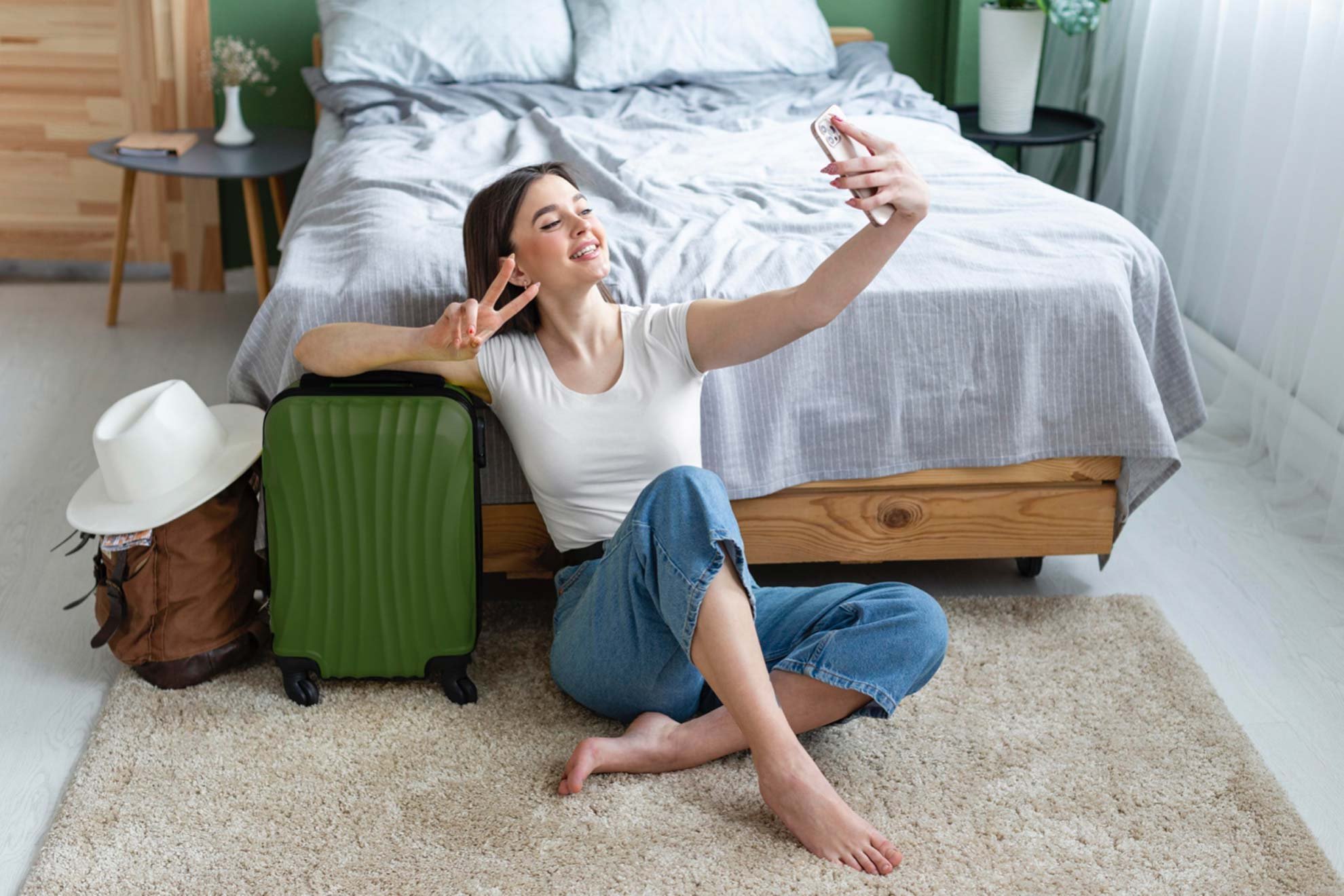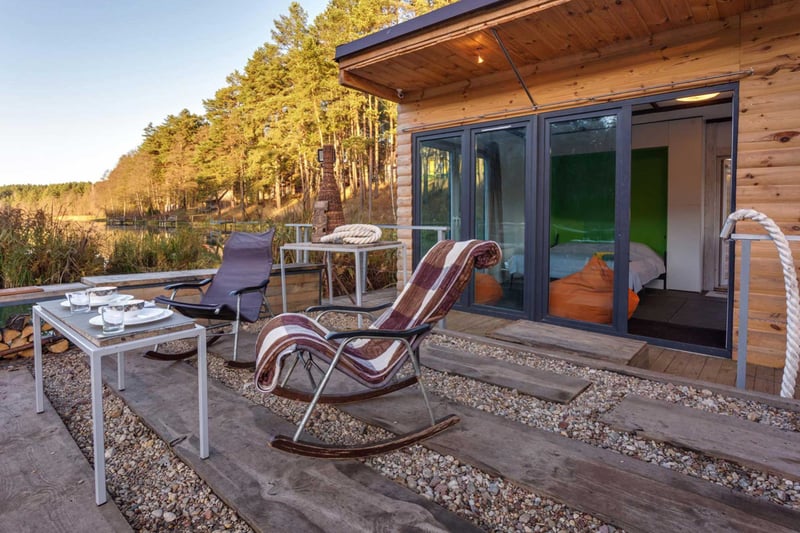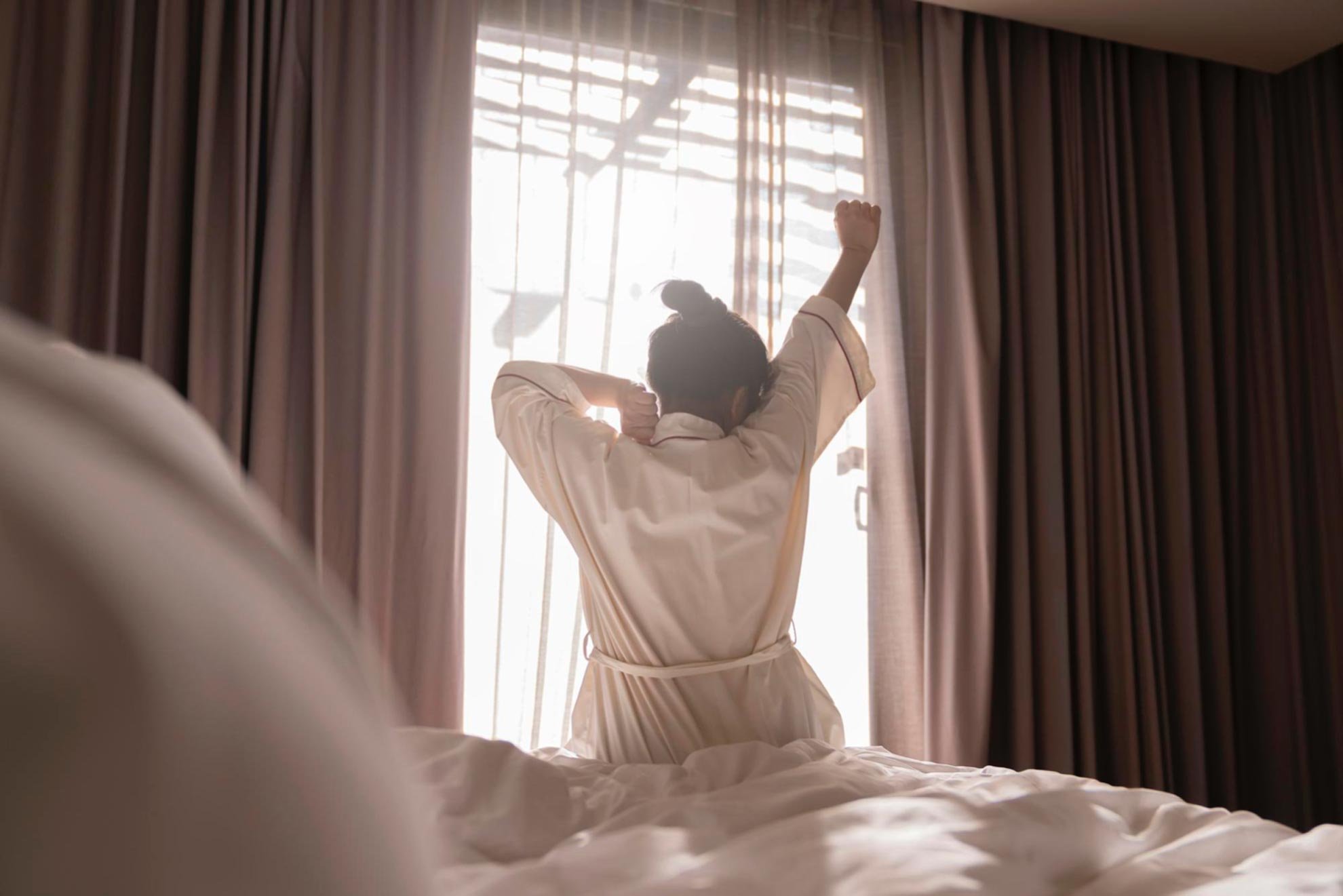How to start an Airbnb?
How do you start using Airbnb for your Business?
Why is it beneficial for property owners and managers to start listing their property on Airbnb's platform? How can it help them grow their business, and what possibilities does it create?
It really did start with an airbed
A long time ago, when Booking.com was a new thing, and Airbnb wasn’t a thing at all, smaller hotel and apartment owners had to reach out to the world from their own marketing resources, and those didn’t stretch very far. Expedia came along in 1996, as a subsidiary of Microsoft, followed rapidly by other Online Travel Agents such as TripAdvisor, and Agoda. Then in 2008 AirBedandBreakfast.com was started by friends Brian Chesky and Joe Gebbia, with the idea of renting out one air mattress in a San Francisco apartment. The company has grown a little bit since then. What the duo discovered was a model which could be applied anywhere, and was scalable. From the smallest apartment, to country cottages, to high rise apartments - guests like the feeling of being ‘at home’ and in control of their environment. Airbnb properties often provide amenities that are less hotel-like and more home-like, such as kitchen facilities, unique and personalised decorative elements, and good internet connectivity. What’s more, costs for an Airbnb are frequently lower than a hotel stay, or offer ‘more bang for your buck’ than an average hotel room.
The win-win approach
There are now over 4 million Airbnb hosts operating worldwide, with around 7 million properties, and an average of 6 people a second make an Airbnb booking every single day. The platform’s user base numbers 150 million guests, a figure which is staggeringly beyond the marketing reach of any hospitality provider, let alone a smaller enterprise. So if you have a room, an apartment or a boutique hotel wanting to offer accommodation to potential customers, Airbnb is a powerful channel to use.
The Airbnb model works for property owners because they can set their own rates, and payments are processed within 24 hours of booking. ‘House rules’ are also at the discretion of the host, and there’s backing from the platform of $1 million property protection. From the guest’s point of view, there’s the perception of quality and reliability that comes from a trusted brand, coupled with the reviews of former guests to establish credibility. Overall it’s a win-win from both sides of the hospitality equation. So, how to start an Airbnb?
Airbnb = more bookings for property owners
So, how to be an Airbnb host, and why should you use Airbnb for your business? - Because it’s a proven method of reaching an enormous potential user base worldwide. Any marketeer will tell you that niche is always the way to go, because that is most likely to produce targeted results. With Airbnb, however, the situation is reversed, and those 150 million customers can all find their way to your business. Of course, you probably don’t want 150 million guests, but it means that the right people can more easily discover the specific hospitality that you are offering. For the owner of a single apartment, steady bookings can lead to expanding the business and acquiring further properties for letting. For boutique hotels, increased occupancy is the prize, with the added bonus of repeat business from satisfied customers and the benefits of having good reviews on a global platform. For property managers, Airbnb also offers efficiencies, reducing time-consuming administration. The channel is already there and fully operational, so just use it!

Airbnb fees for property owners
Since the start of the company, Airbnb hosts have earned themselves $150 billion through the platform - how’s that for a fun fact! Regarding fees, Airbnb charges hosts an average of 15% per booking, transaction fees included, without any additional costs. This is considered under industry standards, another good reason for listing your apartment on Airbnb. Airbnb startup costs are said to average $6,000 / €5,500 / £4,750 per unit (not including the cost of purchasing the property of course), but this depends very much on how much work it is necessary to do to bring a place up to scratch. Is it already in a reasonably good state, and just needs a lick of paint and improved furnishings? Are there major items to consider such as new plumbing, electricity services and heating or air conditioning? Whatever the answer to these questions, it’s not the time to cut corners on Airbnb startup costs: You are investing for the long term, and your reputation as an Airbnb host will in part rest on the quality of your property and services.
How to be an Airbnb host
Becoming an Airbnb host means that you are entering the hospitality business, and this is above all what you must always keep in mind: To be hospitable, and to satisfy the needs of your guests. A lot of this comes down to engaging in a dialogue with guests to find out what they need, want and expect. Perhaps it’s not always possible to fulfil their requirements, but you must always keep the dialogue going, even with occasional ‘problem’ guests. Being active in monitoring reviews, answering them, and posting your own reviews of guests helps greatly in showing you as a caring, approachable and understanding host.

So, how do you start an Airbnb
The advantages of the Airbnb ecosystem are clear, and it’s worked for over 4 million owners worldwide (and counting), But to return to our opening question: How do you get started with Airbnb? Becoming an Airbnb host involves a series of straightforward steps, where you are helped all the way from prompts and suggestions from the company, in fulfilling specific criteria to list your property on the platform:
- Understand Local Regulations: Before you go any further, make absolutely sure that local regulations, zoning laws, or shared property arrangements allow you to rent out your property. This might also mean informally checking with neighbours to avoid any potential conflicts further down the line.
- Be very clear about your offering: A yurt in the desert is not the same as a penthouse in a capital city! What’s your selling point? Is your property luxurious, quirky, convenient, designer, relaxed, or what? You cannot provide everything for everyone, so having a clear target audience in mind will help define how your property will look, and function.
- Prepare your property: When you have a clear idea of your ideal demographic, then you can start to look at your property through their eyes. (Or if you are just starting the process of looking to buy a property, you will know what you are searching for). If you have an existing property, start by cleaning and decluttering the space so that you can really see what works best. This is the point at which you may decide to add further amenities to make your listing more attractive: A new cooker, a smarter sofa, or a faster wifi router.
- Create an Airbnb Account: With upgrades to the fabric of your property ongoing, go to Google Play or the Apple App Store, sign up for an Airbnb account with your email address, a password, and provide your profile. Your Profile should feature a clear picture, showing you as friendly and approachable, and include a detailed personal description. In most cases you are establishing your own personality as the brand, backed by the reputation of Airbnb.
- Provide an attractive listing: Now that you’re in the Airbnb system, you’ll want to make your property stand out from all the rest, so write a compelling title and description. Words like ‘stunning’ and ‘luxurious’ are great (if true!). You should also include high-quality photos that showcase your property. This may be where you need to get a Pro photographer to make the most of your offering. In your property description you should also highlight key features: If you have a swimming pool, tell people! If your property is only 50 metres from the beach, make it known!
- Verify your property: Just as you had to verify yourself as a host when you signed on with the platform, now that your property is ready, this also needs to be verified with Airbnb through your phone number, social media accounts, and other documentation.This process of verification enhances trust between hosts and guests.
- Pricing and Availability: You’re now getting close to rollout, but what do you want to charge? Throughout the build-up to ‘going live’ you should have been studying the market for similar properties locally. What rates are they getting, and what seasonal variations are there? You need to hit the ‘sweet spot’ of not too-pricey, not too cheap. You’ll also want to decide on availability - is this a year-round offering, or are there any times you want to keep the property to yourself?
- Set house rules: Airbnb has an excellent reviewing process for both hosts and guests, which helps screen out people who might - for example - be noisy or leave a lot of mess after their stay. Having a clear sense of what you can and can’t tolerate as a host will help define who stays in your property, and how they treat it. So if - for example - you don’t want smokers, then spell that out in the house rules. If you welcome pets, let people know, and if you're kid-friendly, say so. Clear house rules help both guests and hosts have a mutually satisfying stay. House rules also clarify check in and check out times, access times, and use of services.
- Provide essential amenities: The apartment / cottage / yurt looks lovely and is ready for occupation, but naturally you need to also ensure that bedding, towels and other basics are available. Guests appreciate the little things, whether it’s toiletries, some welcome sweet treat, or a full bottle of washing up liquid and fresh tea towels!
- Communicate, communicate: Always be timely and friendly in responding to guest enquiries and booking requests, while at the same time adhering to your house rules. Good communication includes encouraging guests to leave reviews after their stay, and being proactive with your responses: On the platform, how to be an Airbnb host includes posting reviews of guests.
Property management and Airbnb: Systems that talk to eachother
Although Airbnb started low-key and was specifically for owners of rooms and apartments, who might even be present in the property when it was rented to guests, it soon expanded, and whole apartment rental businesses became enabled through the platform. What began as sharing between enthusiastic amateur and part-time renters became ever more professional. With that professionalism, smaller hotels and other venues signed up, bringing with them existing Property Management Systems. Clearly, there was a need to ensure the Airbnb platform and different PMS could ‘talk to each other’ to provide a seamless operation that would benefit everyone. That’s where companies such as SabeeApp came into the picture, helping to link hotel and apartment owners with other OTAs, as well as Airbnb.

The no-brainer option: Automate and streamline property management
With the help of a Channel Manager in the PMS, your bookings automatically appear in the PMS software, meaning that previously time-consuming manual entries are fully automated, with much less work for the host. Prices and availability are handled by the Channel Manager and are in sync 24/7. The result is that the host has one window to view all OTA activity rather than multiple references to different platforms, mediated through the venue’s own system. SabeeApp provides a constantly reliable connection between Airbnb and the host, who is therefore able to view and control everything from one platform. And as far as Airbnb is concerned, information is constantly updated so that listings, bookings and pricing are always current - which means a better deal for happier customers.
For over ten years SabeeApp has supplied state of the art Property Management Systems specifically tailored to the hospitality industry, coupled with add-on suites of apps that make for a comprehensive offering. In particular, we have centralised software for all Airbnb listings and are an Airbnb preferred partner, enabling hosts to easily manage their Airbnb properties from anywhere, on any device. If you’re already an Airbnb host, or thinking of becoming one, you owe it to yourself and your business success to contact us for a free, no obligation demo of how to start an AIrbnb, and how to be an Airbnb host, with the help of SabeeApp.



